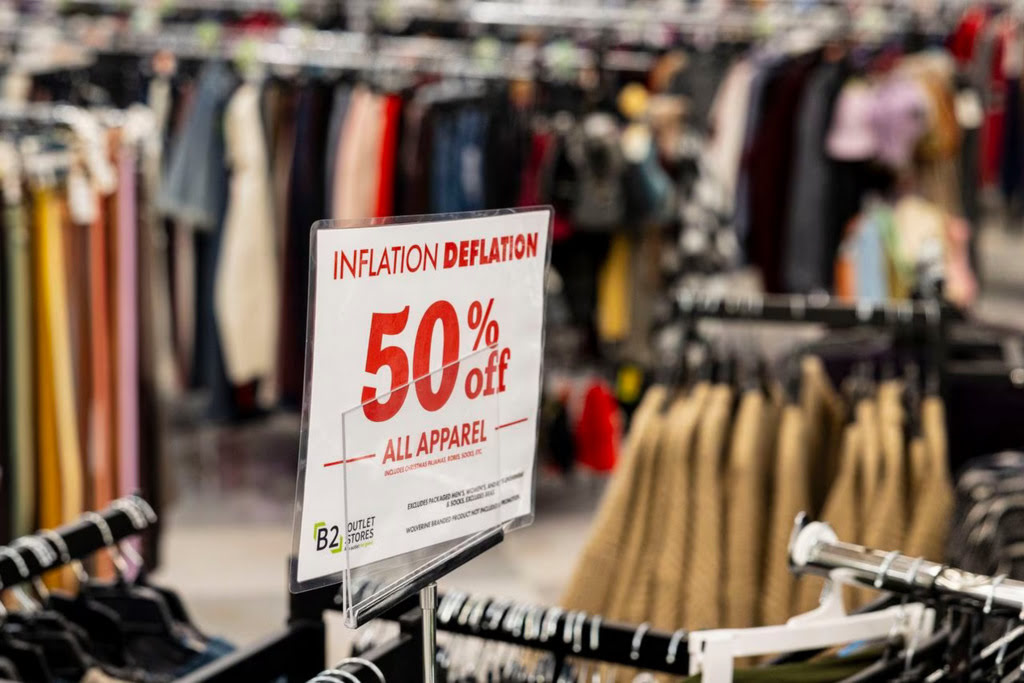Deflation in 2023, 2022 was undoubtedly the year of inflation, especially in developed economies such as the US and UK. In the UK, for example, inflation reached double figures in Q3 last year and peaked at 11.1% in October, while it remained slightly above 10% in January 2023.
The good news is that we’ve seen three consecutive months of falling inflation since November last year, while better-than-expected data releases have also improved economic sentiment on these shores.
But will 2023 see inflation continue to tumble? And will 2024 see widespread deflation? Let’s find out!
Inflation vs Deflation – What Do They Mean?
Let’s start with the key question; what is deflation?
Well, as the names suggest, this is the polar opposite of inflation, which describes a scenario where prices rise in an economy within a predetermined period of time.
Conversely, deflation describes a sustained fall in the overall price of goods and services in an economy, and a subsequent increase in the purchasing power of a national currency.
This shouldn’t be confused with inflation falling, however. After all, deflation can happen even when prices are rising, so long as the rate at which they’re increasing continues to slow.
This is a key distinction, and one that can help us to understand precisely how the economic climate will fare through 2023 and 2024.
A Look at the UK’s Macroeconomic Climate
The UK economy has fared surprisingly well in recent times, avoiding a technical recession in the final quarter of 2022 and poised to see similarly nominal growth in Q1 of this year.
At the same time, February saw the S&P Global and the Chartered Institute of Procurement and Supply’s composite flash purchasing managers’ (PMI) hit 53 points, with this key economic metric up significantly from 48.5 points last month.
Most crucially, this recording breaks the 50-point threshold that separates growth and contraction in an economy, with this representing the first time in six months that the metric has been indicative of growth rather than contraction.
This is good news for the private sector, GDP growth and the wider economy as a whole, as is the fact the inflation has fallen by a single percentage point since the peak of 11.1% in October.
This has come as wholesale energy prices have fallen at a faster-than-expected pace, and if this trend continues, inflation will continue to fall at a noticeable rate through 2023.
The Last Word – When will Deflation Set in?
At first glance, inflationary recessions are rare events, with sustained economic contractions synonymous with falling prices and consumer demand.
However, the key trigger for inflation in this instance has been the war in Ukraine, which initially sent wholesale energy prices soaring and caused the price of food staples such as wheat to increase as scarcity set in (Ukraine and Russia account for 30% of global wheat trades combined).
The good news is that there have been no more price shocks since then, which is why prices have begun to fall steadily over the course of the last three months or so in the UK and through other developed economies.
There’s certainly no reason for prices to keep growing in the current macroeconomic climate, meaning that inflation will gradually fall at a steady rate throughout the next 10 months.
As we’ve already touched on, these figures aren’t yet indicative of deflation, particularly as the purchasing power of the pound and similar currencies continue to be undermined.
Make no mistake; the actual process of deflation may not start in earnest until the end of this year, as purchasing power returns and some semblance of normality is restored to the economy.
This should then continue through 2024, as inflation is dragged back towards the BoE’s target of 2% and prices return to a more proportionate level to earnings.
Interestingly, deflation is often associated with economic contraction, so this process may not signal wider economic growth or that the UK is out of the woods in relation to avoiding a recession.
This will be an interesting space to watch in the future, particularly with the UK’s GDP expected to contract by 0.6% on the whole this year and unlikely to grow markedly next year either.
⚠ Article Disclaimer
The above article is sponsored content any opinions expressed in this article are those of the author and not necessarily reflect the views of CTN News






